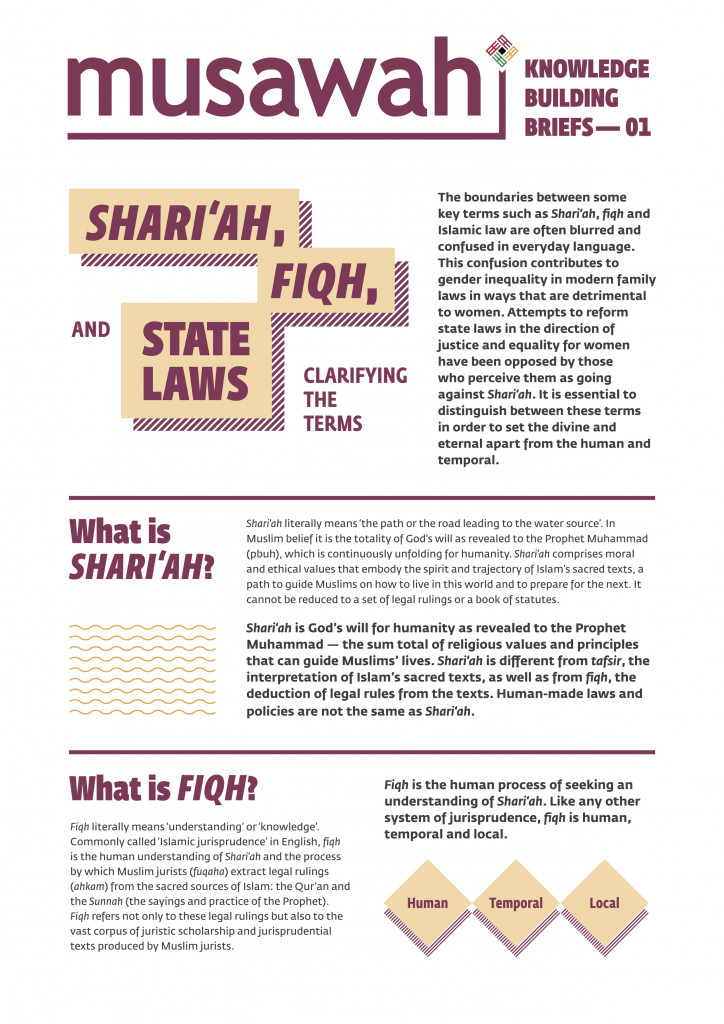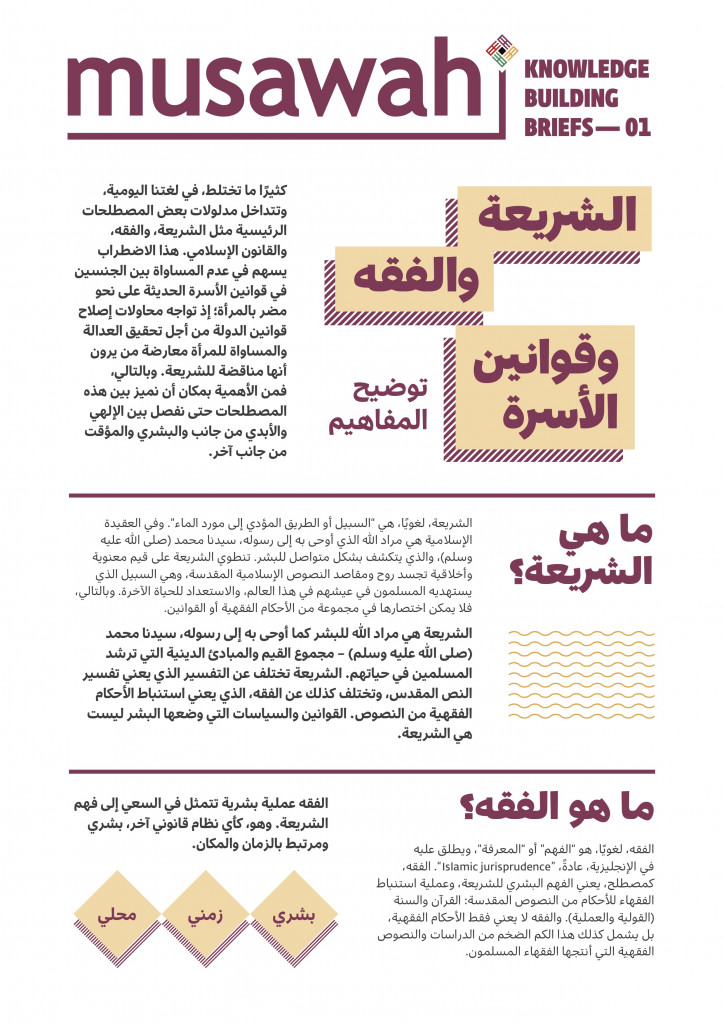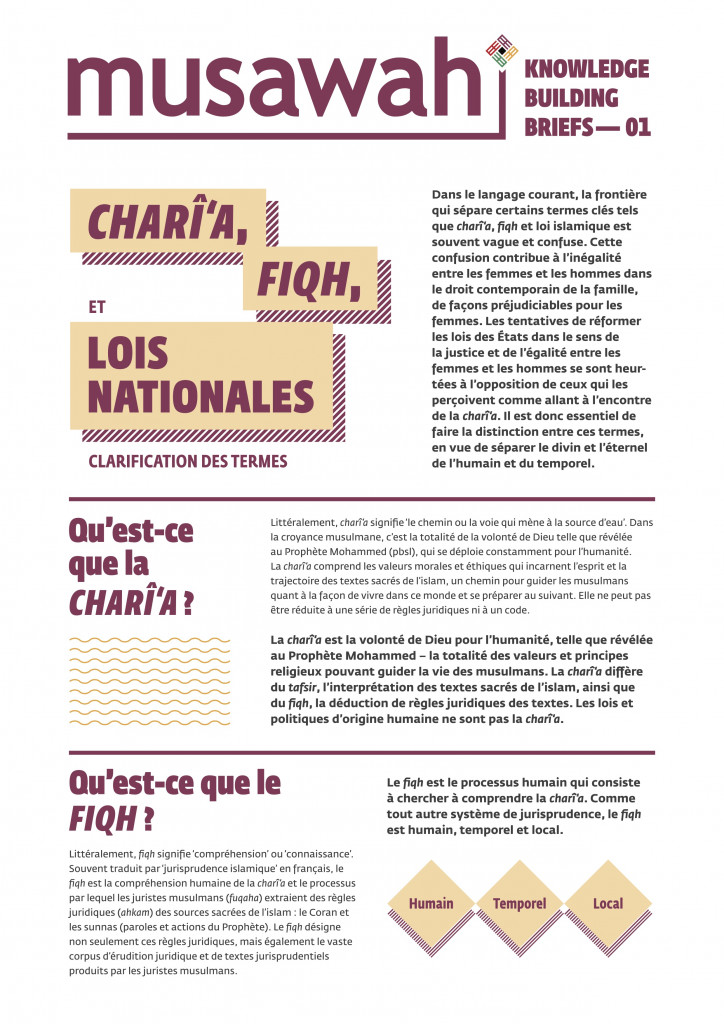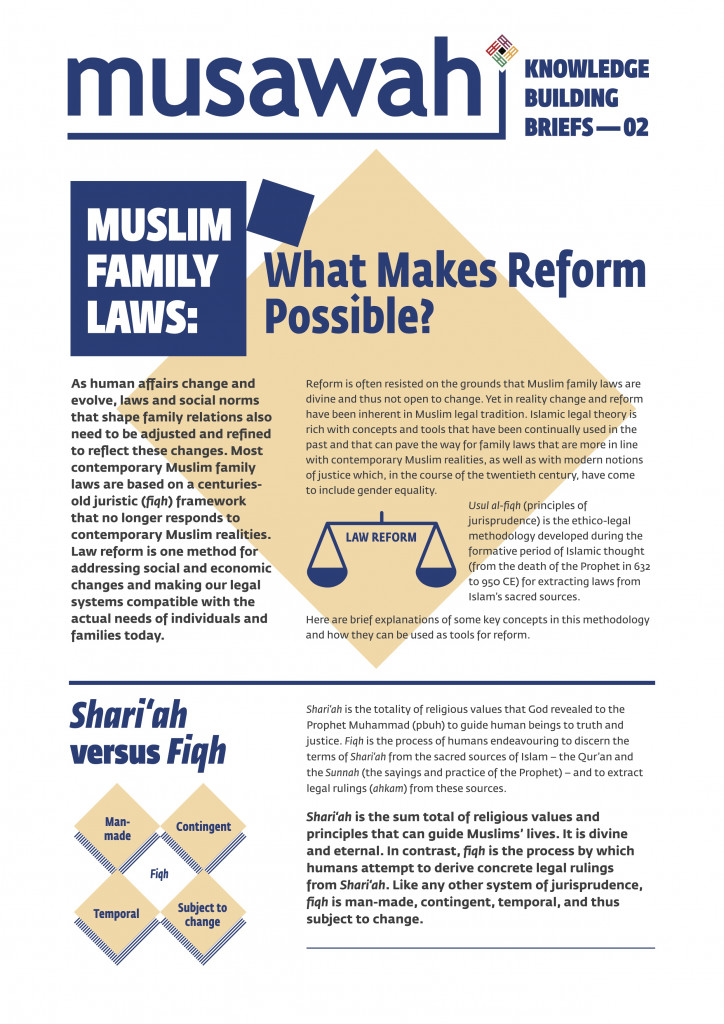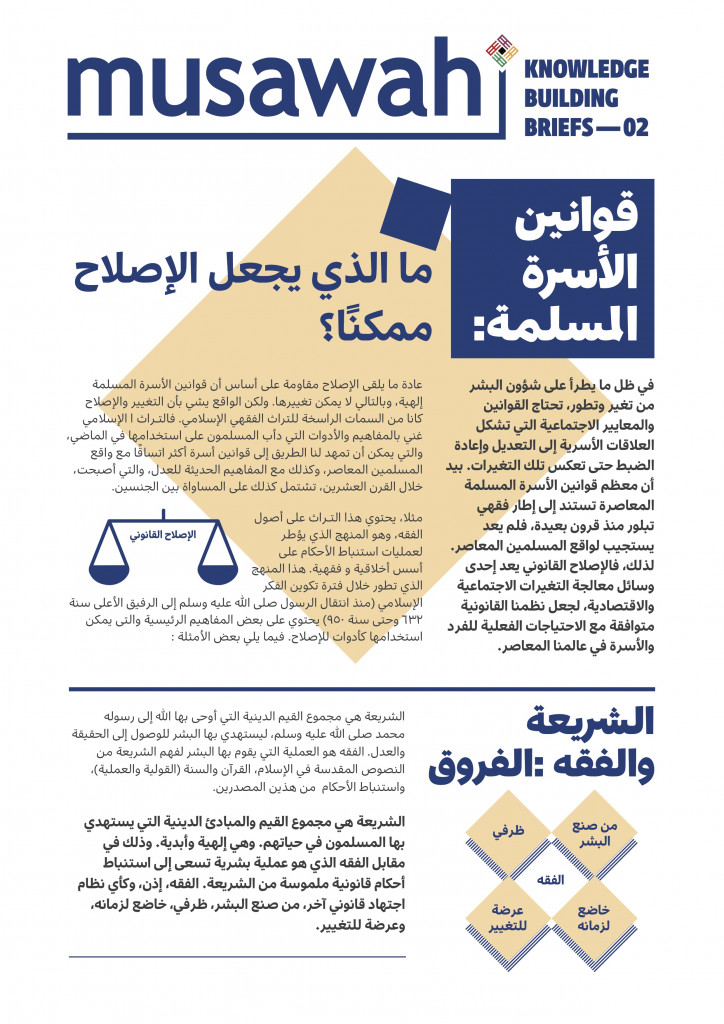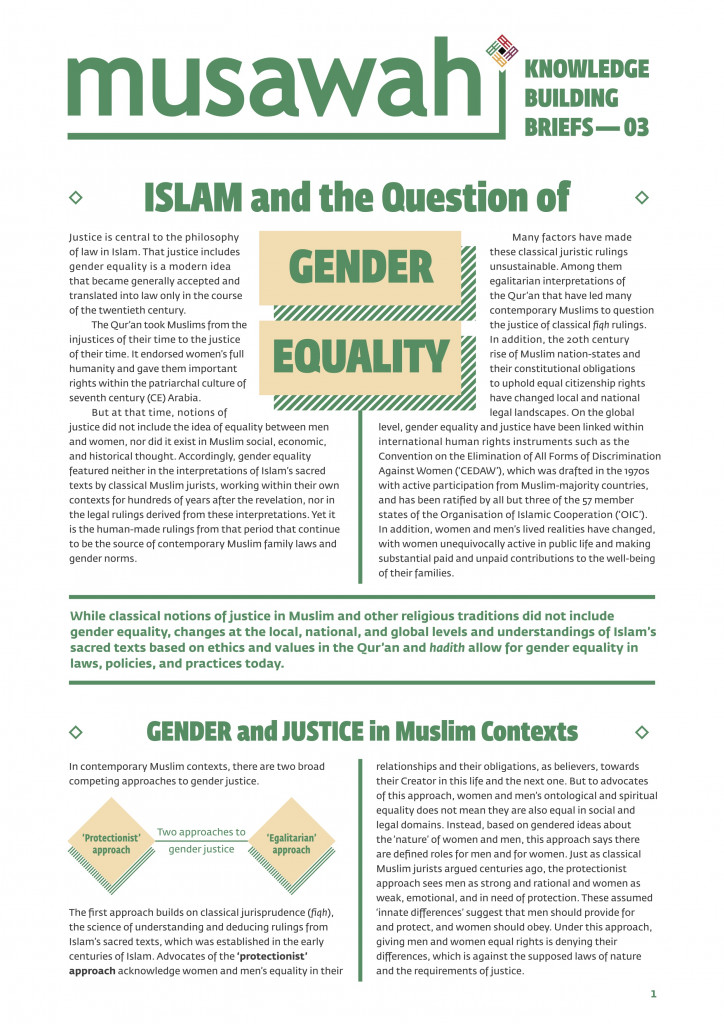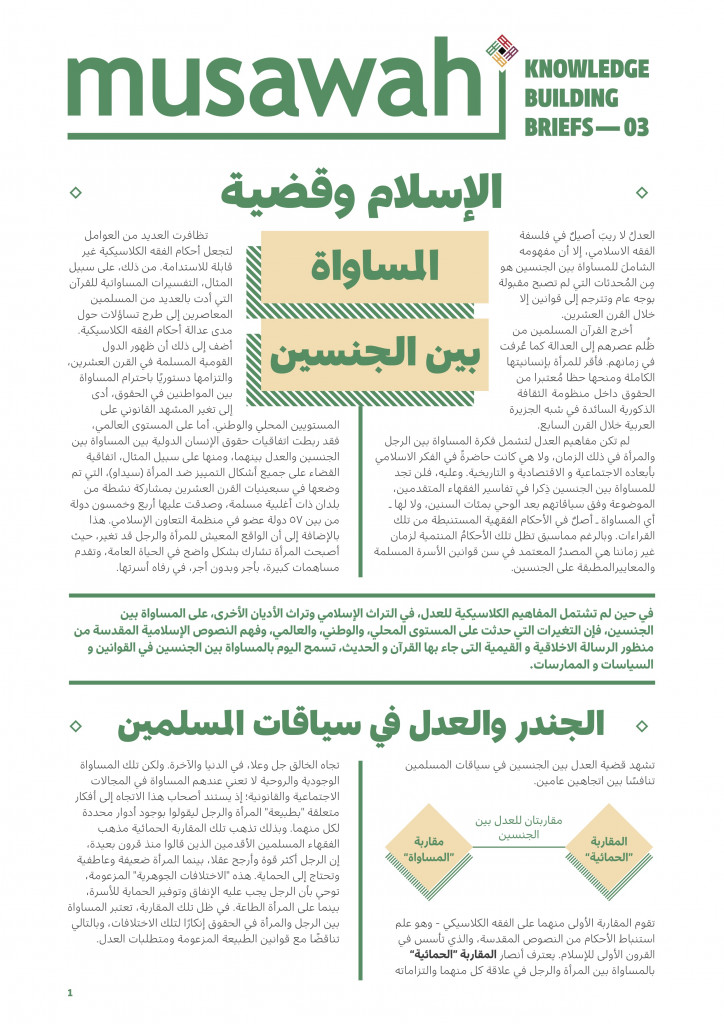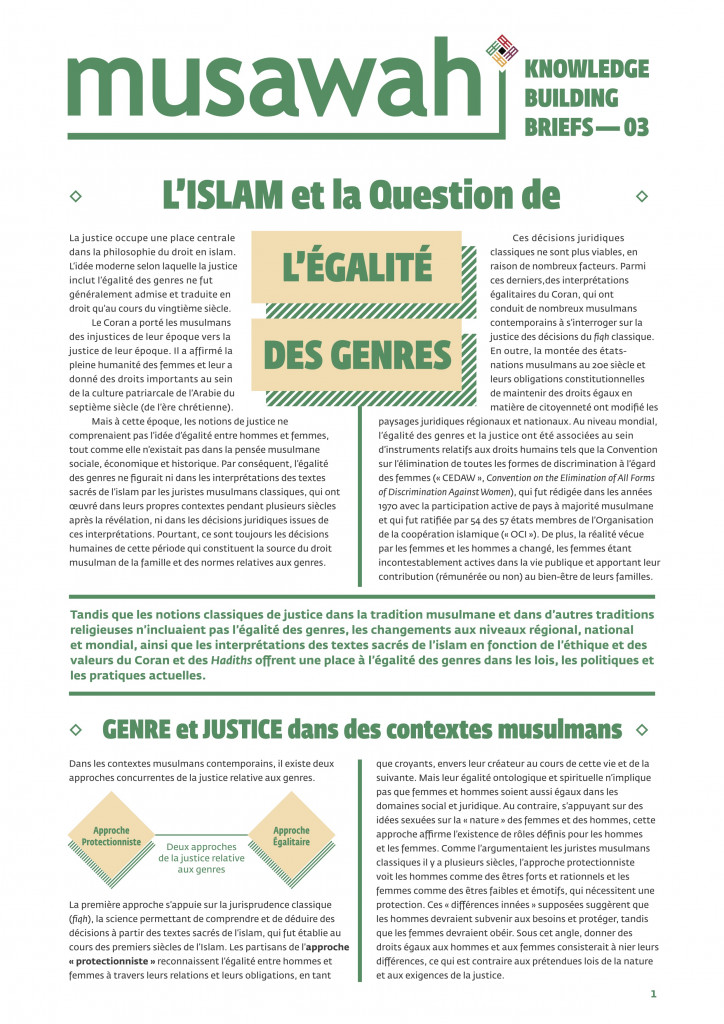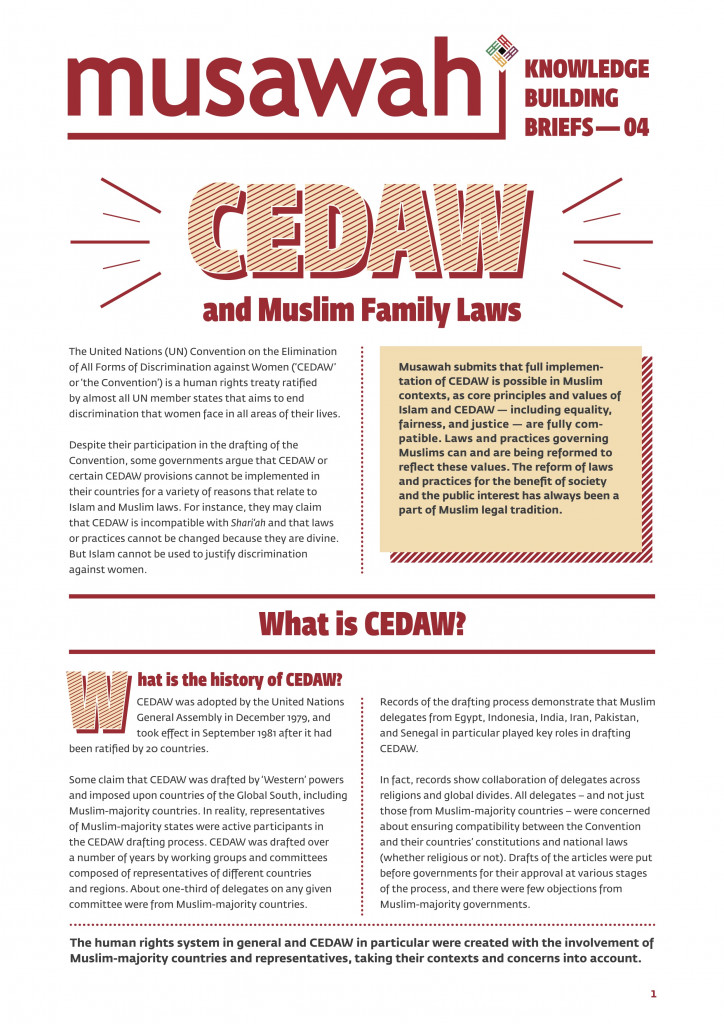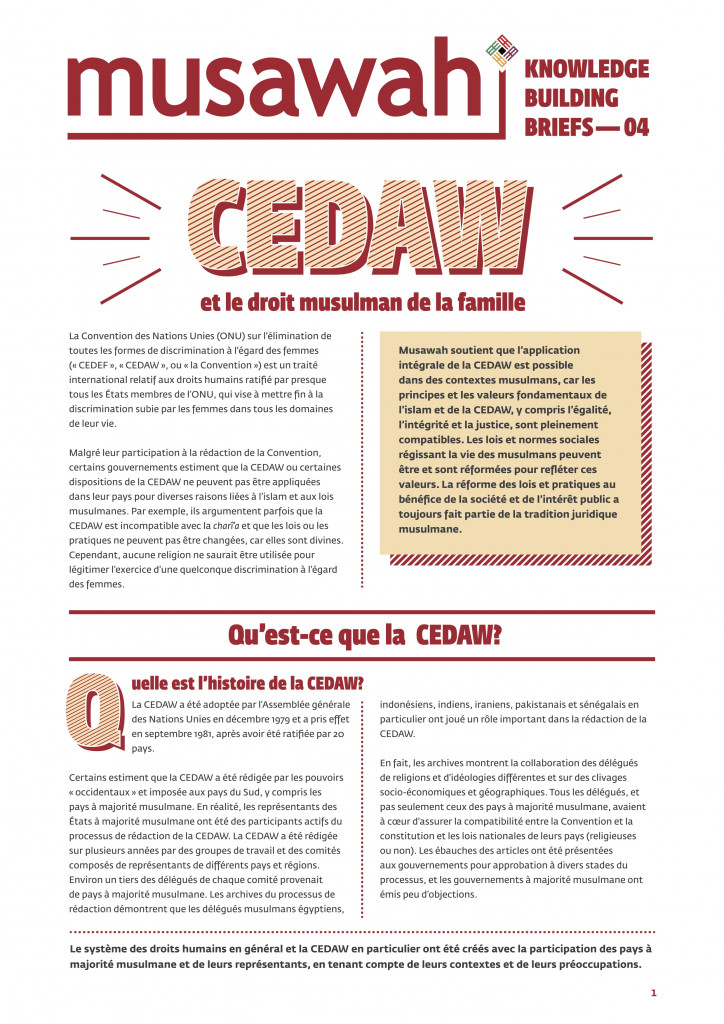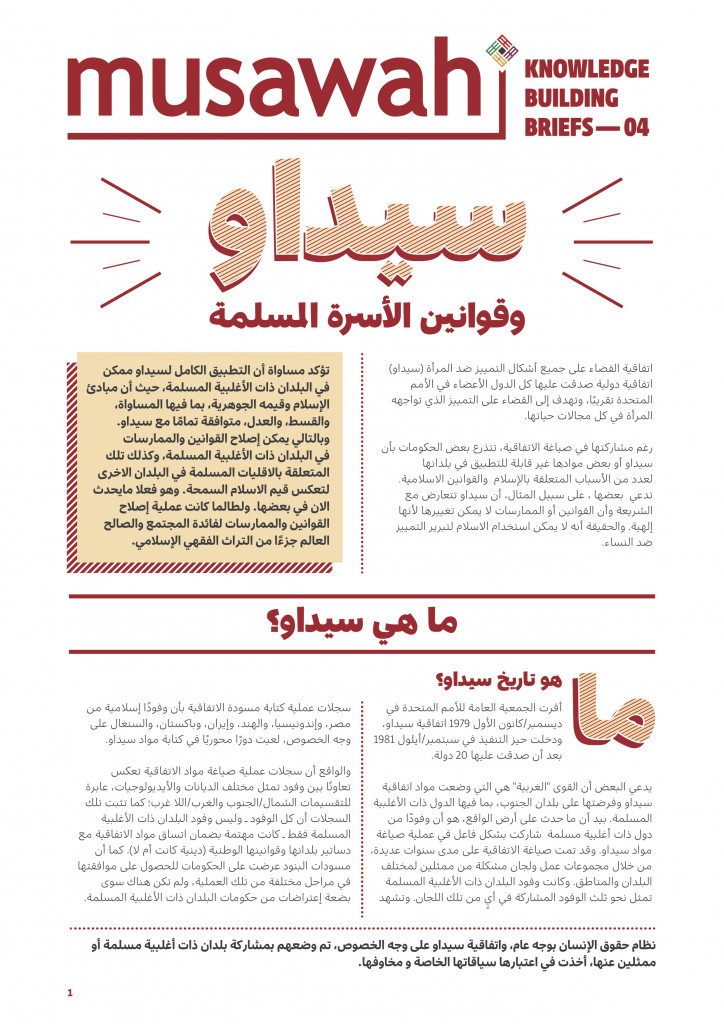Musawah has created a number of tools and resources to help activists, religious scholars, policy makers, and anyone interested in promoting equality and justice from within Islam and ending the misuse of Islam to justify discrimination against women.
If you would like one of our publications in print-ready or high-resolution format, please email info (at) musawah.org with your request.
Knowledge Building Briefs
Knowledge Building Brief #1: Shari‘ah, Fiqh, and State Laws: Clarifying the Terms
Discusses the differences between the concepts of Shari’ah, fiqh (jurisprudence), and Muslim family laws. Efforts towards reform need to recognise that Shari’ah is both divine and eternal (and not to be conflated with what we call Islamic laws), while fiqh and Islamic law—including contemporary Muslim family laws—are human-made and open to change.
Knowledge Building Brief #2: Muslim Family Laws: What Makes Reform Possible?
Deals with the fact that reform is often resisted on the grounds that Muslim family laws are divine and thus not open to change. Yet change and reform have been inherent in Muslim legal tradition, which means it also provides conceptual tools and legal methods for reforming Muslim family laws in line with today’s realities and conceptions of justice.
Knowledge Building Brief #3: Islam and the Question of Gender Equality
Discusses the relationship between Islam and gender equality. Because notions of gender and rights found in classical fiqh (jurisprudence) were socially constructed for that time, they no longer respond to lived realities today and conceptions of justice; therefore, we need to rethink the egalitarian ethical principles of the Qur’an for our contexts today.
Knowledge Building Brief #4: CEDAW and Muslim Family Laws
Argues that full implementation of CEDAW is possible in Muslim contexts, despite some arguments from non-compliant governments. This brief explains how the Convention can become an effective mechanism for States-parties to achieve gender equality.
Knowledge Building Videos
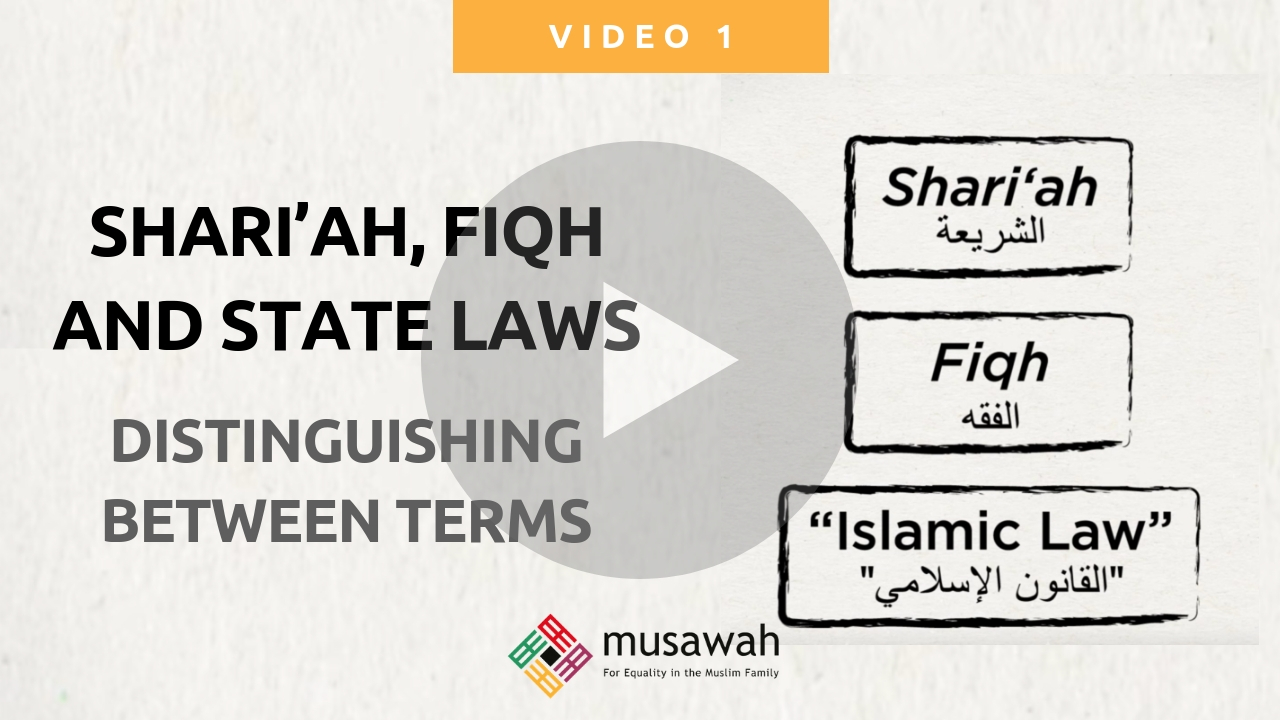
Shariʿah, Fiqh and State Laws
The boundaries between some key terms such as Shariʿah, fiqh and Islamic law are often blurred and confused in everyday language. This confusion contributes to gender inequality in modern family laws in ways that are detrimental to women. Attempts to reform state laws in the direction of justice and equality for women have been opposed by those who perceive them as going against Shariʿah. This video highlights why it is essential to distinguish between these terms in order to set the divine and eternal apart from the human and temporal. (January 2018)
The video “Shariʿah, Fiqh and State Laws” also is available with subtitles in ARABIC and FRENCH. It has been translated into DHIVEHI thanks to Uthema.
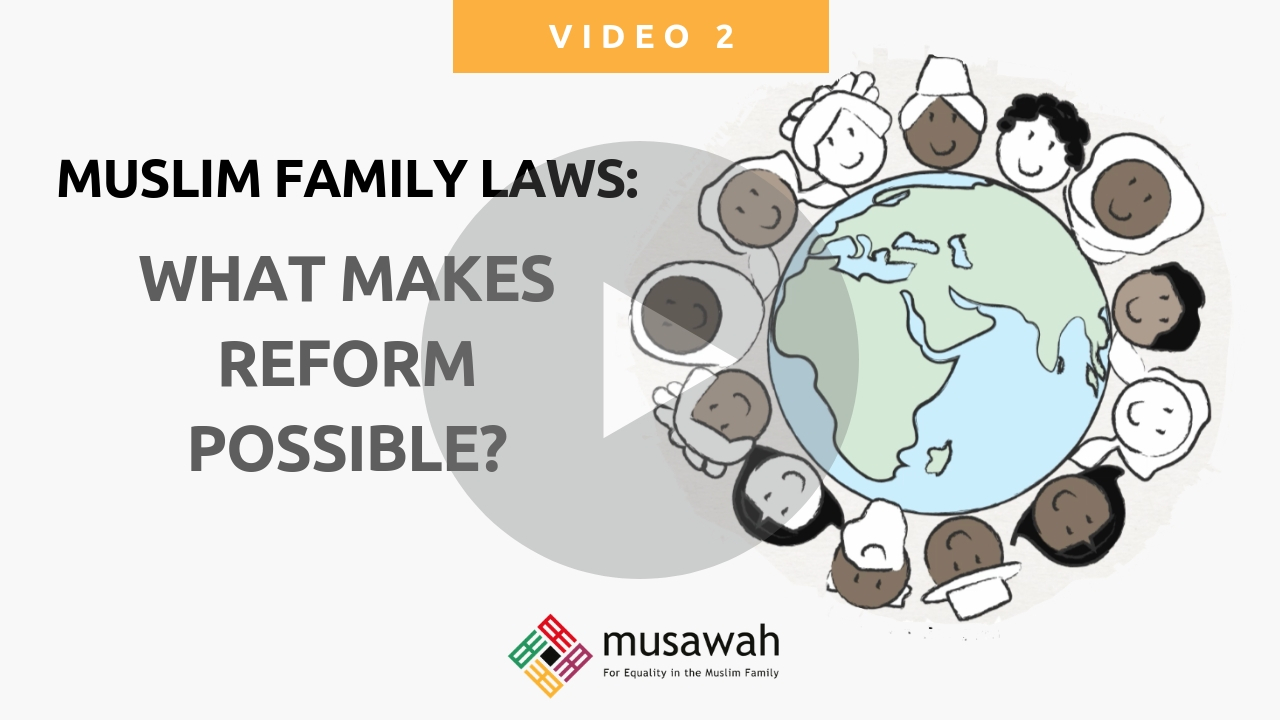
Muslim Family Laws: What Makes Reform Possible?
Reform is often resisted on the grounds that Muslim family laws are divine and thus not open to change. Yet in reality change and reform have been inherent in Muslim legal tradition.
This video highlights concepts and tools from Muslim Legal Tradition that can be used to pave the way for family laws that are more in line with contemporary Muslim realities, justice and gender equality. (May 2018)
The video “Muslim Family Laws: What Makes Reform Within the Tradition Possible?” also is available with subtitles in ARABIC and FRENCH. It has been translated into DHIVEHI thanks to Uthema.

